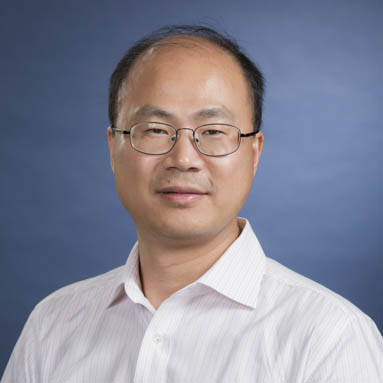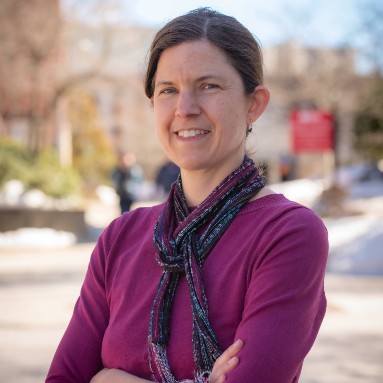WPI’s PhD in Biomedical Engineering offers a friendly, innovative, and collaborative environment that encourages an entrepreneurial spirit. You’ll work closely with world-class faculty on cutting-edge research projects that combine engineering studies with many biomedical disciplines.
To support our passionate and innovative grad students, our resources back research in everything from new medical instruments to engineering cell-derived tissue to robotic devices. We make the PhD in biomedical engineering flexible and adaptable to your specific interests. The curriculum’s hands-on, boundary-pushing work positions you to lead original breakthrough research to help people live longer, healthier lives.

Driven by relentless curiosity, our renowned faculty advance research every day. You’ll work with them to expand your own research and advisors will help you establish a personalized and solid foundation of studies.
Candidates pursuing our PhD in biomedical engineering will take biomedical engineering graduate courses while completing research and teaching opportunities. Students will complete two laboratory rotations (to familiarize themselves with different fields, concepts, and techniques) and a teaching requirement in order to pass a PhD qualifying exam. The program’s flexibility means you’ll gain experience by partnering with local industry or focusing your studies to fit your interests, like teaching or investigating a specific problem.
Candidates in the Biomedical Engineering PhD program conduct ambitious self-directed research alongside some of the field’s best-known faculty. Whatever your interest, WPI’s extensive technical and scientific resources elevate your research possibilities.
Recent research:
- VitaThread protein-based sutures
- Phlebot, a robot for routine blood draws
- Development of immune modulating hydrogel that supports neural stem cell survival during an inflammatory response in an injured spinal cord lesion
- Building whole-organism neuropsychiatric disease models and high-throughput quantitative methods for identifying novel therapeutics using C. elegans
- An engineered microvascular network to enable an eventual cardiac tissue patch
- Creating a biomimetic composite scaffold that recapitulates the mechanical and functional properties of native heart muscle to promote regeneration

Being on the leading edge of research advances means you’ll think like a scientist, an engineer, an entrepreneur—all with technology in the forefront.

Research laboratories at WPI’s Life Sciences & Bioengineering Center at Gateway Park include a 124,600-square-foot space. These labs focus on non-invasive biomedical instrumentation design, signal processing, tissue biomechanics, biomaterials synthesis and characterization, myocardial regeneration, cell and molecular engineering, regenerative biosciences, and tissue engineering.

Classroom knowledge is applied directly to real-world problems as faculty and students work side-by-side in labs, always striving for the next innovation in regenerative medicine, drug discoveries, tissue remodeling, medical imaging, or physiological monitoring.

Successful collaborations with industry partners and significant funding for major research means our faculty and students have the resources to make discoveries that impact areas such as biomaterials and tissue engineering, biomechanics and mechanobiology, and bioinstrumentation and signal processing.
The biomedical facilities at WPI encourage collaboration with open lab spaces that are organized by research focus, accessible faculty, and a close cohort of fellow researchers. Using state-of-the-art instruments and tools, PhD students take advantage of WPI’s 124,600-square-foot Life Sciences & Bioengineering Center to lead their own research projects.
Featured Faculty







Have questions?
WPI's dedicated graduate student support team can help.
Refer a Friend
Do you have a friend, colleague, or family member who might be interested in a WPI graduate program? Click below to tell them about our programs.
Need to Pursue a Master’s Before Thinking About Biomedical Engineering PhD Programs?
Not quite ready to earn a PhD? Consider our master’s in biomedical engineering which provides students the foundation needed to make advances in the healthcare industry from engineering concepts to medicine and biology. Maybe you’re looking for a more pronounced focus on engineering? Not to worry! We offer a master of engineering in biomedical perfect for entrepreneurial engineers. Maybe you have specific questions about what a biomedical engineering PhD salary looks like or what types of biomedical engineering jobs are out there before you embark on earning your doctorate. From various medical settings to rehabilitation robotics and technology, WPI graduates pursue careers in a range of niche industries that peaks their interests. Students work as engineers and senior scientists at companies like Abbvie, Boston Scientific, Intellia Therapeautics, and more. Check out more career outlook information related to biomedical engineering here.
Fascinated by How Engineering Principles and Medicine Intersect? Look into a BS in Biomedical Engineering.
A BS in Biomedical Engineering will get you started on a path that offers diverse and dynamic career opportunities while providing you with constantly changing academic potential. Our bachelor’s program in BME is hands-on and students jump right into our project-based learning curriculum. Students here are involved in meaningful research with our expert faculty members from their very first year. Maybe you have specific questions about what a biomedical engineering salary looks like or what types of biomedical engineering jobs are out there before you embark on earning your doctorate. Check out our career outlook for biomedical engineering or our career outcomes for post-graduate degree information.
The BioPoint Program for Graduate Students has been designed to complement traditional training in bioscience, digital and engineering fields. Students accepted into one of the home BioPoint programs will have the flexibility to select research advisors and take electives in other departments to broaden their skills. BioPoint curriculum is designed to be individual, interactive, project-focused and diverse, and includes innovative courses, seminars, journal clubs and industrial-based projects. Learn more.